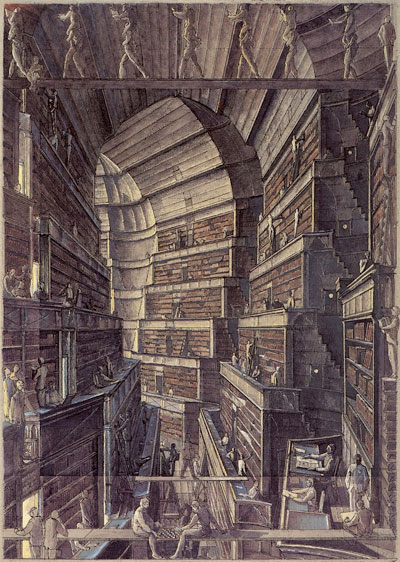
|
| An illustration of the Library of Babel by Erik Desmazieres |
- The idea of a total library
- The futility of such a library
Librarians are “total” in their desire for a perfect, complete library. Unfortunately, this totalizing mindset can fossilize into the belief that if something isn’t in the library, it doesn’t exist. The promise of total, accessible knowledge (the first preoccupation) is shadowed by the futility of searching through miles of records for that one essential piece (the second preoccupation). Catalogers perpetually compare the catalog to the shelf, hoping for a perfect match—a Sisyphean task that is never truly finished. This struggle isn’t unique to librarianship but echoes throughout Western philosophy. Ever since Thales posited that all existence rests on a single principle, thinkers have sought an absolute—a “univocity”—that undergirds reality. The search remains forever unfinished, yet it continues.



